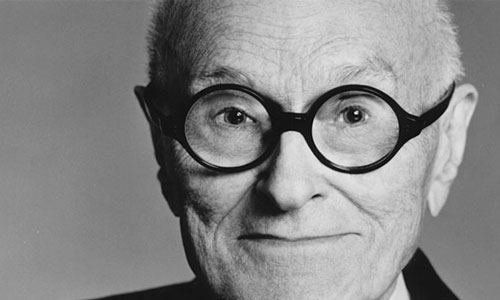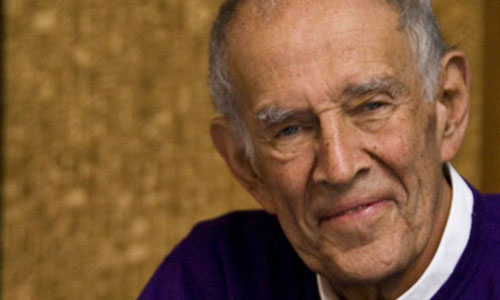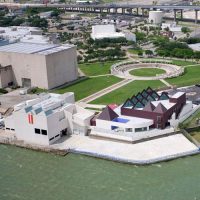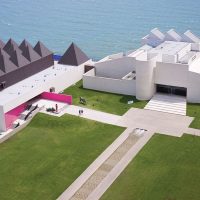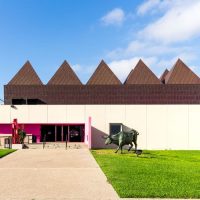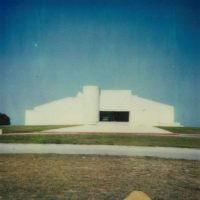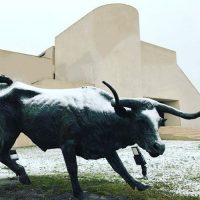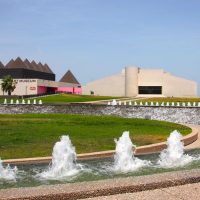Two Artists. One Masterpiece.
Nowhere is our blend of cultures more present than in the architecture of the museum itself. Originally designed by American architect, Philip Johnson in 1972, the Art Museum of South Texas has stood as a landmark on the edge of Corpus Christi Bay. The three-level facility was constructed of poured white concrete and shell aggregate creating a natural relationship with the environment. The windows give way to sweeping views of the bay making them works of art in their own right. In 2006, an expansion lead by Mexican architect, Ricardo Legorreta doubled the size of the space features 13 roof-top pyramids as well as stunning use of color and light.
A beautiful marriage of their unique perspectives, the two buildings come together as one incredible masterpiece proudly representing Mexican and American cultures.

